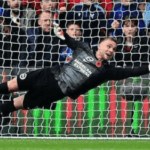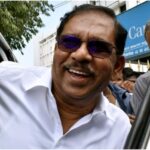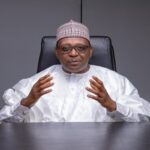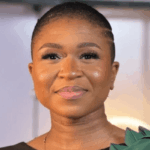Democracy rests on a very simple truth: citizens should be able to choose their leaders freely, without pressure, fear, intimidation, or someone being able to motivate them by dangling money in front of them. Elections around the world are used to determine how strong a country's democracy is and has become. But here in Nigeria, it is different, and it seems something disturbing is quietly taking root.
What used to be an open secret has now become a defining feature of our elections. Vote buying is no longer an occasional problem; In fact, it is becoming a norm and a path to electoral victory. And nowhere was this more evident than in the recently concluded 2025 Anambra Governorship election.
What happened in the Anambra elections was not new, and that is the problem with the recent reality of Nigeria's democracy. Like most elections in Nigeria, the Anambra governorship election was no different; It began with initial inducements to potential voters through customized gifts, food items, vouchers and money.
By the time people started queuing up to vote, security agencies had reportedly arrested several persons for sharing cash with voters. Reports indicate that sums ranging from ₦15,000 to ₦30,000 exchanged hands in different local government areas. Voters in various local governments are reportedly offered between ₦15,000 and ₦30,000, people are influenced, and their preferences begin to change. Some agents didn't even bother to hide; They openly carried around envelopes and bundles of currency notes, trying to buy the loyalty they could never earn through actual service. This revealing report felt like watching a slow disaster unfold that threatens to swallow whatever is left of our democratic values.
Elections are gradually shifting from an expression of choice to a simple exchange of money.
Vote-buying is not just a crime under the law; This is an insult to the dignity of citizens. It weaponises poverty in such a way that voters have to choose between their conscience and the need to survive. With the rising cost of living hitting families from every angle, it's easy to understand why some people take money for granted. But what is found at that moment is nothing compared to what was lost. Collecting ₦15,000 today means losing the moral right to demand accountability tomorrow.
Once votes are exchanged for cash, leaders no longer answer to the voters; They answer only to their ambitions and the people who finance them.
And this is not a unique Anambra problem. Nigeria's electoral story has long been tainted by ballot snatching, rigging and intimidation. But the rise of monetized elections is a more sophisticated threat. It doesn't scream. It doesn't break windows. It doesn't make headlines the way violence does. Yet it silently eats away at the core of democracy.
The “look and buy” methodology seen in Ekiti in 2018 and Ondo in 2020 has now become a nationwide strategy adopted by desperate politicians. Instead of filling ballot boxes, they simply line pockets, and the damage is even harder to reverse. They no longer hijack ballots; They hijack the freedom of choice.
The consequences are overwhelming. When money trumps ideas, merit and character, elections are no longer a competition of ideas, vision and the mission of providing good governance, transparency and accountability to the people. They become markets. In such a market, only the rich or the heavily sponsored have a chance, no matter how incompetent they are.
Leaders who spend millions to win elections inevitably want to recoup their investment, which promotes corruption and weakens governance. And ordinary citizens, seeing elections as an opportunity for small financial gains, lose faith in the entire system.
The Anambra election is a warning. This exposes a painful truth: vote-buying now poses a greater threat to freedom of choice than the traditional electoral problems we fear. It deepens poverty, distorts political competition, and destroys the sacrifices of those who fought for democracy in this country.
But the situation is not hopeless.
Institutions like INEC, EFCC and civil society groups must step in not just by making arrests but by addressing the deep roots of the problem. Nigerians need continuous voter education that goes beyond slogans. People have to understand that selling their vote means selling their future.
At the same time, the government must confront the harsh economic realities that make voters vulnerable in the first place. Unless poverty is reduced, money will continue to speak louder than manifestos.
Democracy must provide every citizen a moment when their voice carries as much weight as the voices of the rich and powerful. The ballot paper was a symbol of that equality. Today that symbol is fading. If Nigeria continues to normalize vote-buying, we will lose more than elections; We will lose our freedom, our future and the soul of our democracy.
Once again, it's time to reclaim the freedom to choose.
.Ogundayi is the Executive Director of the Institute for Free Market and Entrepreneurship West Africa.
ibadan nigeria [email protected]
+2349035930050











